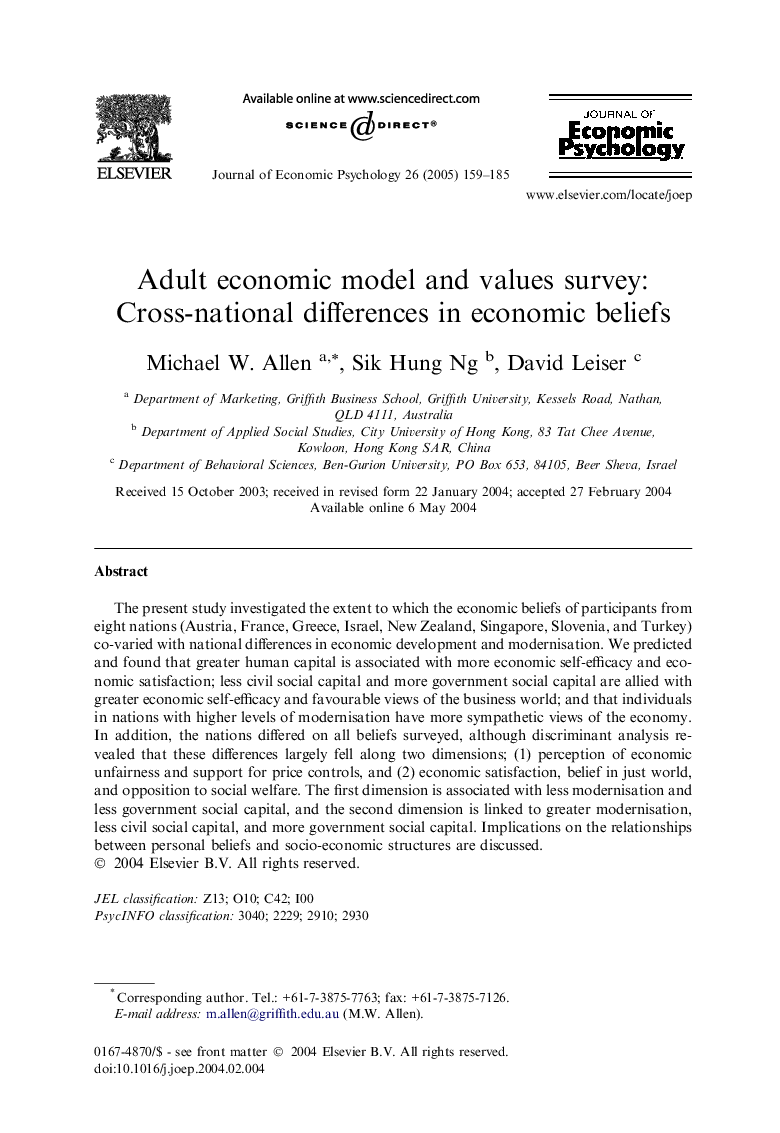| Article ID | Journal | Published Year | Pages | File Type |
|---|---|---|---|---|
| 10438555 | Journal of Economic Psychology | 2005 | 27 Pages |
Abstract
The present study investigated the extent to which the economic beliefs of participants from eight nations (Austria, France, Greece, Israel, New Zealand, Singapore, Slovenia, and Turkey) co-varied with national differences in economic development and modernisation. We predicted and found that greater human capital is associated with more economic self-efficacy and economic satisfaction; less civil social capital and more government social capital are allied with greater economic self-efficacy and favourable views of the business world; and that individuals in nations with higher levels of modernisation have more sympathetic views of the economy. In addition, the nations differed on all beliefs surveyed, although discriminant analysis revealed that these differences largely fell along two dimensions; (1) perception of economic unfairness and support for price controls, and (2) economic satisfaction, belief in just world, and opposition to social welfare. The first dimension is associated with less modernisation and less government social capital, and the second dimension is linked to greater modernisation, less civil social capital, and more government social capital. Implications on the relationships between personal beliefs and socio-economic structures are discussed.
Keywords
Related Topics
Social Sciences and Humanities
Business, Management and Accounting
Marketing
Authors
Michael W. Allen, Sik Hung Ng, David Leiser,
